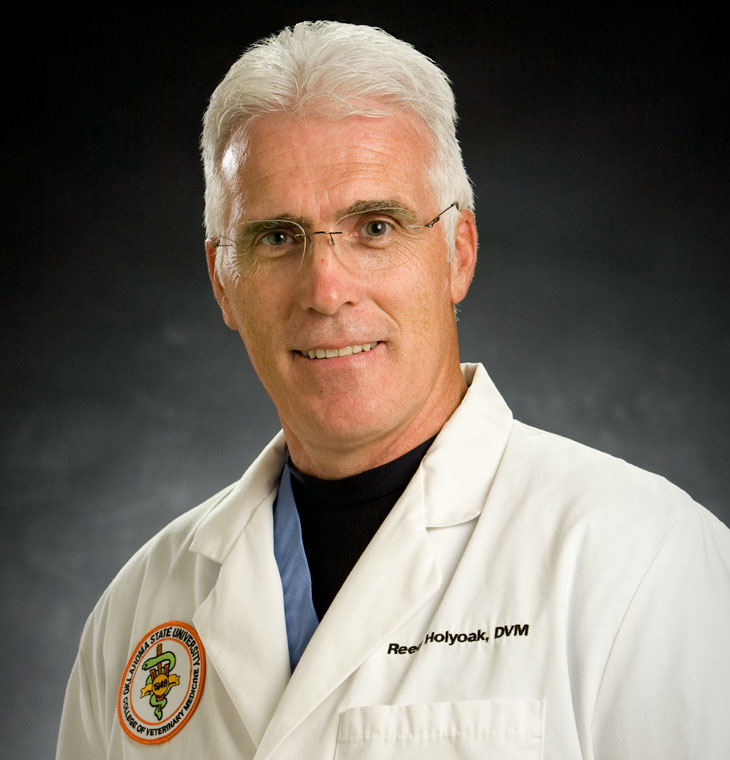
Vet Med Faces of Research: Dr. Reed Holyoak
Tuesday, March 3, 2020
Reed Holyoak, DVM, Ph.D., DACT, Bullock Professor of equine theriogenology at Oklahoma State University College of Veterinary Medicine, epitomizes the mission of a land grant university. He teaches the next generation of veterinarians, he provides theriogenology or animal reproduction services to clients, and he conducts research to move the profession of veterinary medicine forward. While being a clinical researcher can be challenging, Dr. Holyoak finds the dynamic process a lot of fun.
“I started doing research as an undergraduate and kept doing research through a master’s degree, my DVM degree and my PhD,” said Holyoak. “My first appointment involved research and since joining OSU in 1999, I have juggled teaching, seeing clinical cases and finding time to plug in research. You have to continue to think, to ask questions. What we do is supposed to be evidence based veterinary medicine. So if you are not questioning yourself – why are you doing what you’re doing – there’s no growth.
“We have several main projects going on right now at the College of Veterinary Medicine Ranch,” said Holyoak. “One focus is on the reproductive microbiome. People know that we have commensal bacteria that keeps skin healthy. If we’re stressed, we produce different hormones that can change the bacteria on our skin and we break out. We’re looking at those bacteria that normally are supposed to be there to protect the reproductive tract in mares.
“We need to know what the normal is,” he continued. “When everything looks normal but we can’t figure out exactly why they accumulate a little bit of fluid in their reproductive tract that keeps them from getting pregnant, then this becomes a problem economically in the lives of Oklahomans. There are more horses per capita in Oklahoma than in any other state in the Union. So our work with horses directly translates into the Oklahoma economy.”
So Holyoak and his team set out to determine what “normal” is for the mare’s reproductive tract.
“In veterinary school you are taught that the reproductive tract has bacteria in it and the closer you get to the uterus, it becomes sterile. Some of the work being done now in humans says, no, there are bacteria there. They are just not easily identified and they don’t culture well or grow in the lab. We have these sub-fertile mares, why are they sub-fertile? Is there a difference in the population of normal bacteria in their uterus? We decided to find out what normal is.”
Holyoak reports that they have taken a deep dive into this arena. He has samples from Louisiana, and from different farms in Oklahoma as well as in Australia.
“I feel like we’re right now almost figuring out what normal might be,” he said. “Part of what we do here is help veterinary students and residents develop research projects. They have a hypothetical question and the protocol to try to answer that question. They do the research, get the results and find out if their hypothesis was correct or incorrect. And then they move forward and advance their knowledge and skills as they work toward their career. We not only answer research questions and obtain knowledge but we build careers, we’re people builders and that’s really fun.
“Theriogenology is the most fun because we deal with the miracle of life. Reproduction is biologically diverse. Each species has its own interesting recipe to reproduce its species. In human medicine you only deal with one species but we get the fun of dealing with everything from cats and dogs to horses and even camels. If you have an inquisitive mind and like to answer questions, research is fun. Find your passion and go after it.”
If you would like more information about Oklahoma State University College of Veterinary Medicine Ranch’s theriogenology program, visit the CVM Ranch webpage.
